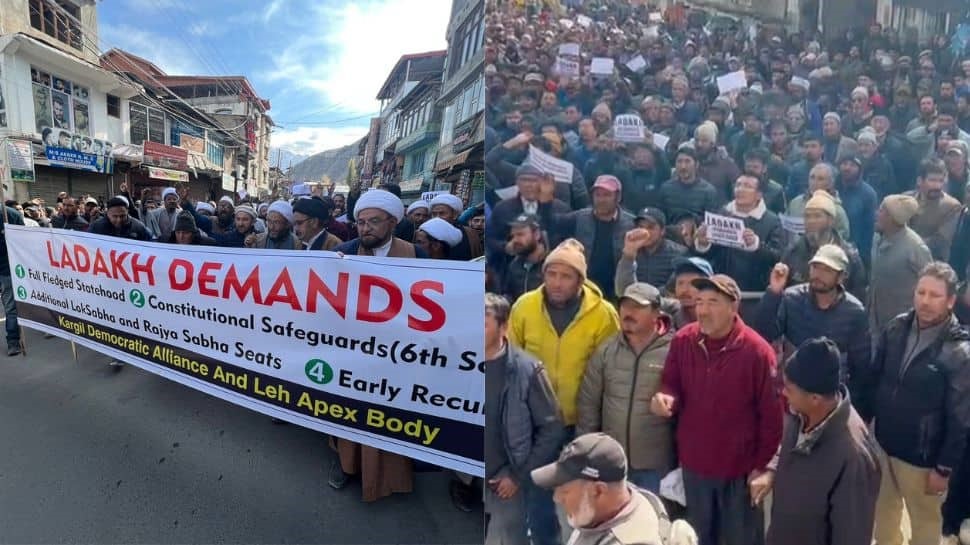Free Courses Sale ends Soon, Get It Now


Free Courses Sale ends Soon, Get It Now



Disclaimer: Copyright infringement not intended.
Context
Demands of the Movement:
Background
Basic Demands:
Imperatives Behind Ladakh's Current UT Status
Cultural and Demographic Differences:
Security Considerations:
Developmental Perspective:
Rationale for Statehood:
Significance of Statehood:
Way Forward:
|
Constitutional Provisions Related to Formation of States in India Article 3 of the Indian Constitution:
Conditions under Article 3:
The Sixth Schedule About:
|
|
PRACTICE QUESTION Q. Discuss Ladakh's demand for statehood, including its primary demands and implications. Evaluate the factors contributing to this demand, its alignment with Ladakh's aspirations and the constitutional framework, and the challenges and opportunities associated with granting statehood to Ladakh. |
© 2024 iasgyan. All right reserved